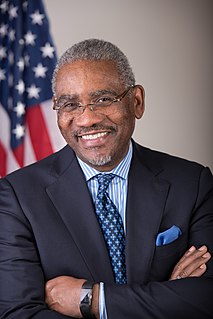A Quote by Gregory Meeks
If you put a purchase on a charge card, you're paying it off forever. You have to know how to pay it off before you go deeply in debt.
Related Quotes
Environmental concern is a little like dieting or paying off credit-card debt - an episodically terrific idea that burns brightly and then seems to fade when we realize there's a reason we need to diet or pay down our debt. The reason is that it's really, really hard, and too many of us in too many spheres of life choose the easy over the hard.
Maybe you'll take the cash out. So a credit card company or a bank that goes into the business of saying we're going to be the broker, we're going to sell you a mortgage that you're going to be able to pay off, we're going to help you reduce your credit card debt, we're going to help you save for retirement, we're going to put you into mutual funds that have low fees rather than high fees.
There's also consumer debt, the credit card debt that burdens many of the working families in America. Yes, we talk about national debt, and we're paying a lot down. But you're fixing to hear me tell you part of the remedy for people who have got a lot of credit card debt is to make sure people get some of their own money back.
If you do not have at least an eight-month emergency fund, and you think there's a probability you could loose your job - and it's not just losing your job; you could be in a car accident, get sick - continue to pay the minimum on your credit card every month. Everything beyond that needs to go to establish an emergency fund. And if you have an emergency fund saved, then fund your retirement account before paying down credit card debt.































